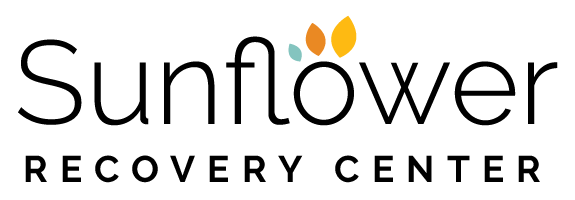As the clock strikes midnight on New Year's Eve, many of us make resolutions, promising ourselves that this will be the year of change. And like most people, by the time February starts, those resolutions have fallen by the wayside. Most resolutions fail because they lack a plan and people aim for perfection over progress. If you’ve decided that in 2024 you’re ready to break free from the grip of addiction, then you’re ready to take the first steps towards sobriety and freedom. Keep reading to learn how to build a recovery plan and start making progress.
Step 1: Acknowledge the Problem
It has often been said that the first step to solving any problem is to first admit that there is a problem. This holds true for drug and alcohol addiction. If you’re not aware that your house is on fire, then you’ll end up burning down with it. You’re reading this blog so there’s a good chance that you’re aware there is a problem. That’s good! If you’re still on the fence about it, take a long, honest look at your behavior, patterns, and the impact of substance abuse on your life and relationships. Denying the reality of a situation only prolongs the inevitable suffering and prevents you from getting help. Admitting there is a problem is a courageous beginning; one that opens the door to recovery.
Step 2: Look into Professional Help
I’m not saying you can’t get sober on your own. I am saying that it’s a whole lot harder and your chances are a whole lot slimmer when you try to do it on your own. If addiction was something that most people could overcome through willpower or determination, we wouldn’t have the record number of overdose deaths that we do in this country. Drug and alcohol treatment programs continue to exist because they work and because the alternative is death. Addiction is a progressive, chronic, and terminal disease if left untreated. Working with a licensed addiction treatment center for help with substance abuse is akin to a cancer patient working with an oncologist. It just makes sense. Long-term sobriety requires work. Treatment facilities utilize licensed clinical and medical professionals to create a personalized plan for you tailored to your specific needs. Different therapeutic modalities provide the guidance, support, and resources necessary for your recovery journey. You acknowledged the problem, now ask for help in crafting the plan.
Step 3: Build a Support Network
Addiction survives in isolation. Recovery thrives in community. Surrounding yourself with a supportive network of friends, family, and fellow individuals on the path to recovery can be instrumental on the journey towards sobriety. Joining support groups and/or 12-step programs can connect you with individuals who understand your struggles and offer invaluable accountability and advice. Additionally, confiding in trusted loved ones about your journey can provide you with the emotional support you need during challenging times.
Step 4: Healthy Habits
Habits are created over time through behavior patterns. When we continually do something it eventually becomes automatic and difficult to change. Using drugs or alcohol on a daily basis creates a lot of destructive habits. Drug treatment programs and support networks help us break those bad habits but unless they are replaced with healthy habits, there is a high likelihood of relapse. It’s difficult for anything to survive in a vacuum. The healthy habits we replace them with are things that help maintain sobriety and foster personal growth. Instead of killing ourselves with drugs and alcohol, we’re healing ourselves with exercise, meditation, good nutrition, and self-care. Incorporate practices into your daily routine that promote physical, mental, and emotional well-being. Engaging in positive outlets not only helps distract from cravings but also reinforces a sense of purpose and fulfillment in life beyond addiction.
Step 5: Progress, Not Perfection
Recovery is like the ultimate road trip. The journey is filled with ups and downs, victories, and setbacks. Embrace the trip and commit to taking it one day at a time. Focus on the present moment and celebrate each small victory along the way. Understand that setbacks are a natural part of the process and use them as opportunities for learning and growth. Remember, every step forward, no matter how small, brings you closer to the life of freedom and fulfillment you deserve. Practicing gratitude goes a long way.
2024 is Your Year
The plan is all laid out for you. Now it’s up to you on what to do next.
If you’ve admitted there is a problem and are ready to talk about getting help, call Sunflower Recovery today. Most of our staff are in long-term recovery. We understand where you are coming from and we’re here to help.

